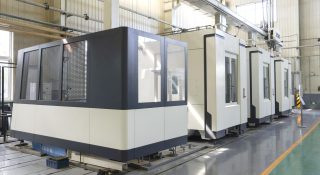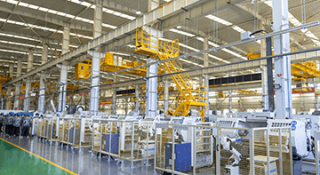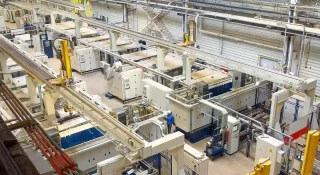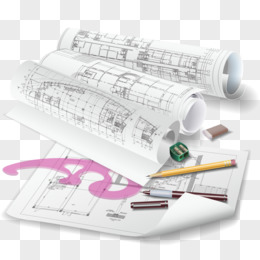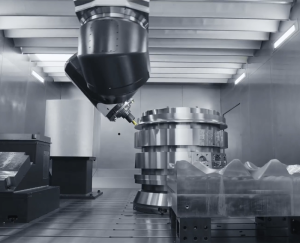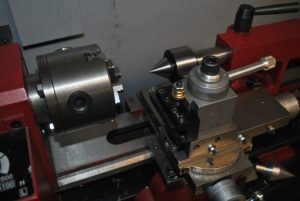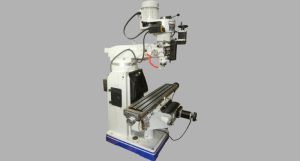Used machine tools, or “veterans of industry,” have become favorites among manufacturers due to their affordable prices and lasting durability. In today’s fluctuating economy, a well-maintained, high-performing used machine tool can be a real “lifesaver” in production. However, choosing the right used machine tool isn’t easy. It takes experience, insight, and a bit of luck. So, what should you know before making a purchase?
When selecting a quality used machine tool, focus on checking its exterior, running tests, and reviewing its technical documents. This way, you ensure the machine’s structure is intact and its performance reliable. Stick to well-known brands and popular models, which usually have easily available spare parts. Additionally, consult professionals to confirm the machine’s precision and dependability. By following these steps, you can secure a cost-effective machine that supports your production needs.
This guide will dive into the key points you need to consider when choosing a used machine tool, helping you find a reliable, durable, and value-packed addition to your manufacturing setup.
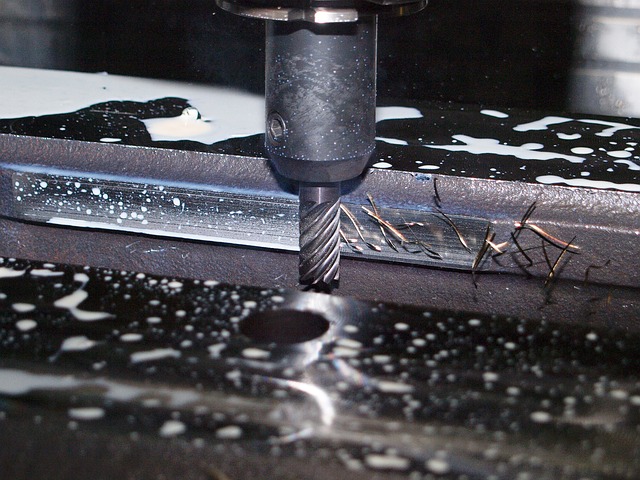
Types of Used Machine Tools
First, you should identify the type of machine tool you need. Understanding the functions and uses of different machine tools helps you define your specific requirements, so you can avoid ending up with a machine that doesn’t suit your processing needs. Here are some common types of used machine tools:
- Lathe: Used for machining rotating surfaces, a lathe is perfect when you need precision and stability.
- Milling Machine: Ideal for processing flat surfaces, angles, and grooves, this machine works well for fine, detailed work.
- Grinding Machine: Essential for precision work, grinding machines include surface grinders, cylindrical grinders, and centerless grinders.
- Drilling Machine: Designed for fast cutting, drilling machines handle hole-making tasks efficiently.
- CNC Machine: As a modern, automated tool, CNC machines meet high-precision demands in various manufacturing environments.
Advantages of Used Machine Tools: Cost-Effective, Eco-Friendly, and Proven
Why are more and more people choosing used machine tools? Here are the main reasons:
- Cost-Effective
New machine tools can be expensive, especially high-end CNC equipment. In contrast, used machine tools cost only a fraction of the price, helping small and medium businesses save money. With used machines, even companies on a tight budget can access high-quality production equipment. - Eco-Friendly and Sustainable
Using used machine tools reduces the need for new equipment production, which conserves resources and lowers industrial waste. Each reused machine tool saves valuable resources and contributes to environmental protection. - Proven and Reliable
Most used machine tools have already been tested in the market, with mature designs and stable performance. Classic models, especially those with technical upgrades, often handle high-intensity demands in industrial production even better.
How to Choose a High-Quality Used Machine Tool
Choosing a high-quality used machine tool requires skill, especially when facing a wide range of options. Carefully evaluating each detail can help you find a reliable machine that meets your production needs. Here are some essential steps and tips:
Visual Inspection: The First Step in Evaluation
The appearance gives the first impression of a machine’s quality. Checking its exterior helps you spot any visible damage or wear:
- Surface Condition: Look for rust, cracks, or severe wear on the machine’s surface. These issues affect the machine’s appearance and may also indicate internal damage.
- Key Components: Focus on inspecting essential parts like the spindle, guideways, and tool holders. Any unusual wear or looseness here can impact precision and stability.
- Structural Integrity: Observe the overall structure, making sure there’s no looseness or deformation. A solid structure and tightly connected parts ensure reliable operation.
Operational Testing: Hands-On Evaluation
A visual check isn’t enough; you’ll need to perform operational tests to assess the machine’s performance directly:
- Power Check: After powering up the machine, evaluate its running smoothness. Start it up and listen for vibrations or unusual noises in the spindle, which indicates that the spindle and transmission are in good condition.
- Processing Test: If possible, do a simple machining test. Use a piece of material and let the machine process it briefly. Then, check the finish and flatness of the machined surface to verify its precision.
- Speed and Torque Test: Test the machine’s response at different speeds, observing whether it remains stable during low and high-speed operation. Avoid machines that struggle under high loads, as they may be prone to failure.
Technical Documentation: Knowing the Machine’s “Background”
Technical documents provide important insights into the machine’s history and performance. Complete records help you make a well-informed decision:
- Manufacturing Date and Usage: Check the production date and usage history. Machines used for many years may show signs of wear, and performance may decrease over time.
- Maintenance Records: Review its maintenance history to see if it’s been regularly serviced or had major repairs. Machines without proper maintenance may have hidden issues.
- Operating Manual: Make sure the machine includes a detailed operating manual and maintenance guide. These resources are invaluable for future use and upkeep.
Brand and Model: Trust in Reputation
The brand and model are key indicators of quality. Major brands typically offer better quality, support, and spare parts availability. Consider these factors:
- Well-Known Brands: Choose brands with strong market recognition, such as DMG Mori, Mazak, Okuma, and Haas. These brands are known for quality and durability.
- Popular Models: Opt for established models. Classic, well-tested models are usually more stable and have readily available parts. Avoid outdated models, as they may lack support and service.
- Spare Parts Supply: Ensure the used machine has access to spare parts. Even high-quality machines experience wear, so easy access to parts can greatly reduce maintenance costs.
Consulting Professionals: A Well-Rounded Evaluation
Before buying a used machine tool, it’s wise to consult experienced professionals or engineers. They can offer expert opinions and help you avoid potential risks:
- Technical Evaluation: Ask a mechanical engineer or technician to assess the machine’s performance. For complex CNC equipment, their advice ensures you gain a complete understanding of the machine’s capabilities.
- Precision Testing Instruments: If possible, use specialized tools like laser interferometers or parallelism gauges to test the machine’s accuracy. These tools give a clearer picture of whether the machine meets your precision needs.
- Advice from Industry Experts: Reach out to knowledgeable used machine tool suppliers or colleagues, and listen to their experiences. Their insights can provide valuable perspectives on the machine’s functionality.
Price Comparison: Getting the Best Value
Price plays a big role when choosing a used machine tool. To secure the best value, consider comparing prices thoroughly:
- Market Research: Before purchasing, research the market prices for your target machine type. This way, you’ll avoid overpaying or falling into a low-price trap.
- Balancing Quality and Price: High-quality used machines often cost more than the average, but they’re worth the investment. Machines priced below the market average may have hidden issues, so aim for a fair balance of quality and cost.
- Total Cost Assessment: Beyond the purchase price, factor in maintenance and repair costs. Some used machines may need replacement parts, so include these in your pre-purchase total cost evaluation.
Maintenance and Care for Used Machine Tools
After purchasing a used machine tool, regular maintenance is essential for keeping it running smoothly and efficiently:
- Routine Inspections
Set up weekly and monthly inspection plans to check critical components like guideways and the spindle for any damage or wear. Regular cleaning and fresh lubrication ensure the machine operates without hitches. - Timely Replacement of Worn Parts
Used machine tools endure frequent use, which leads to inevitable wear on certain parts. Keep a close eye on these vulnerable components, and when any issues arise, replace them right away to prevent more significant failures. - Lubrication and Cleaning
Apply lubrication regularly to the guideways, spindle, and other moving parts, and remove any accumulated dirt or dust. Metal shavings and dust buildup inside the machine increase wear, so routine cleaning not only extends the machine’s life but also preserves its precision.
FAQs: Is a Used Machine Tool Worth Buying?
Q1: How long can a used machine tool last?
A1: With proper maintenance, a used machine tool can last a very long time. Many brands offer machines that, when well-maintained, continue to perform with high precision and stability for decades.
Q2: Is technical support available for used machine tools?
A2: When you buy a used machine tool from a reputable brand, you can often get access to technical support and spare parts. It’s best to choose brands known for good customer service and after-sales support.
Q3: Will a used machine tool’s accuracy be affected?
A3: While accuracy may decrease slightly over time, most used machine tools can still meet standard machining needs with professional tuning and regular upkeep.
Conclusion: The Endless Potential of Used Machine Tools
Choosing a used machine tool is a smart decision. For startups and companies on tight budgets, selecting the right used machine tool not only saves costs but also provides reliable production equipment. However, the used machine tool market is vast and varied, so take the time to research and assess each machine’s condition and history. A well-chosen and well-maintained used machine tool can become a valuable asset in your workshop, opening up endless possibilities for your business. If you have more questions about choosing a used machine tool, we’re here to offer professional advice and support. Visit Minnuo Group’s website, and let’s find the perfect equipment to bring your manufacturing dreams to life.


